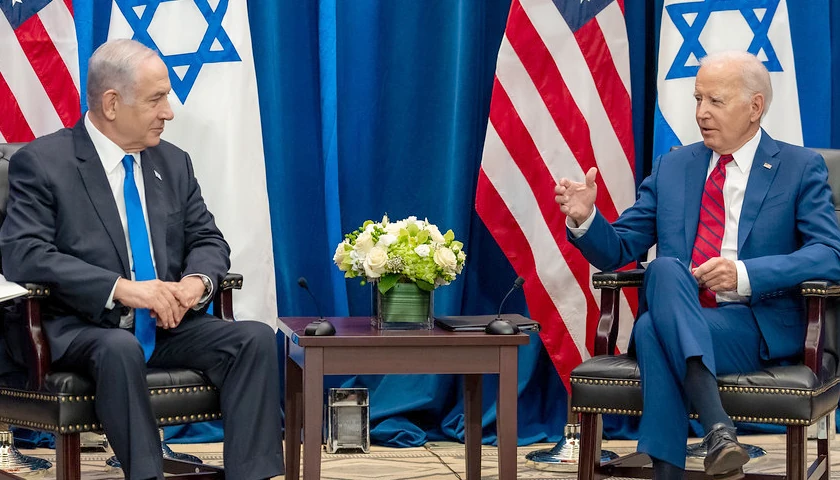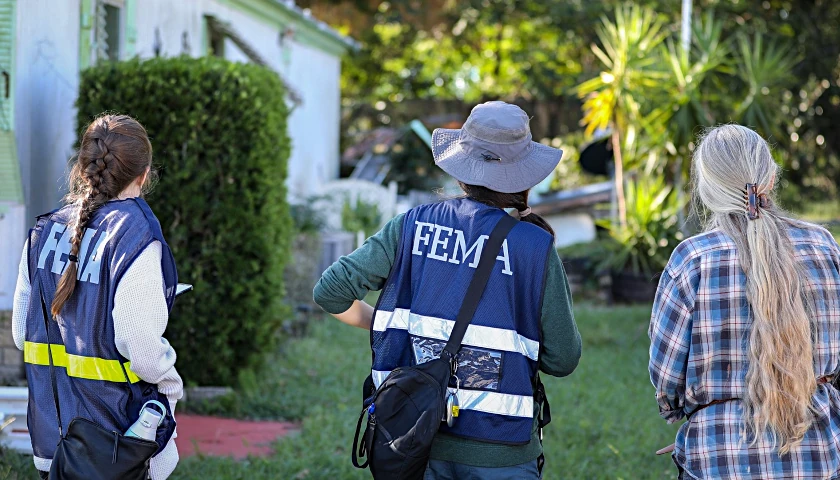by Jake Smith
The Biden administration has turned its focus to securing the release of hostages from Hamas as chances for a ceasefire deal appear to be fading, Politico reported on Thursday.
A ceasefire deal between Israel and Hamas — who went to war in October after Hamas invaded Israel — has been a months-long goal of the U.S. and international negotiators, though it has been nearly impossible to reach an agreement. U.S. and Western officials have become concerned that the possibility of a ceasefire is quickly dimming, with the priority now being shifted toward freeing the remaining hostages in Gaza, according to several officials who spoke to Politico.
“The ceasefire is dead,” a Western official briefed on discussions told Politico. “It seems like the war is never going to end … even if a deal is reached. So, they are trying to get the hostages home knowing that the fighting is going to continue anyway.”
 U.S., Israeli and Arab mediators are in Egypt this week to continue weeks-long negotiations on a ceasefire, in what has been described as a possible last-ditch effort to get a deal done. One of the terms for a ceasefire would be that Hamas release its remaining hostages in exchange for an end to fighting with Israel.
U.S., Israeli and Arab mediators are in Egypt this week to continue weeks-long negotiations on a ceasefire, in what has been described as a possible last-ditch effort to get a deal done. One of the terms for a ceasefire would be that Hamas release its remaining hostages in exchange for an end to fighting with Israel.
Behind closed doors, Biden administration officials have spent weeks focusing on the details of the hostage aspect of the deal, officials familiar with talks told Politico. Freeing the hostages from Hamas would hinge on Israel releasing a high number of Palestinian prisoners.
Some U.S. and Israeli officials have advocated that the hostage release element of the deal should be separated entirely from the ceasefire agreement, though that idea has received pushback from U.S. and Israel, according to Politico. But two people with direct knowledge of negotiations told Politico that there’s a growing feeling among officials that a hostage-prisoner swap would be easier for Israel and Hamas to agree to rather than a full-scale ceasefire.
Still, even securing the release of the hostages presents its own obstacles. Hamas has been stubborn as to how many hostages it’s willing to release; requests for the release of extra hostages in July beyond the current proposal slowed down talks, Israeli officials told Politico, and Hamas refused the request.
There’s also a question as to how many hostages are still alive. It is estimated that there are over 100 hostages remaining in Gaza, although Israeli intelligence has concluded that a number of those hostages are now dead. Hamas itself has previously admitted it does not know how many of the hostages are alive.
There’s an increasing sense of frustration with Israeli Prime Minister Benjamin Netanyahu and his demands for a deal and handling of negotiations, according to Politico. Netanyahu has had public disagreements in recent weeks with top Israeli officials over how the war will end.
Separately, it still isn’t clear what the reconstruction plan for Gaza would be even if a ceasefire deal was reached. Swaths of the region have been devastated by the conflict, creating a humanitarian crisis among the Palestinian population.
Aid groups have been moving humanitarian assistance into Gaza since October. Some groups believe that the only way to get the needed amount of aid into Gaza is if a ceasefire is reached, though they no longer believe that will happen, according to Politico.
Assistance groups “were hoping there would be a cease-fire and that the cease-fire would be a short-term solution to helping get aid in,” one person with close ties to the Biden administration told Politico. “It doesn’t seem like that is going to happen.”
The State Department did not immediately respond to a request for comment.
– – –
Jake Smith is a reporter at Daily Caller News Foundation.




